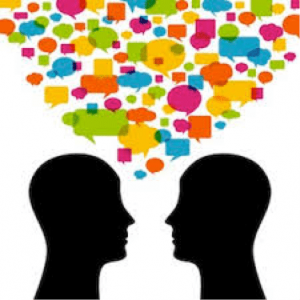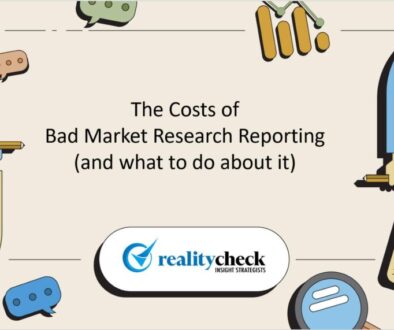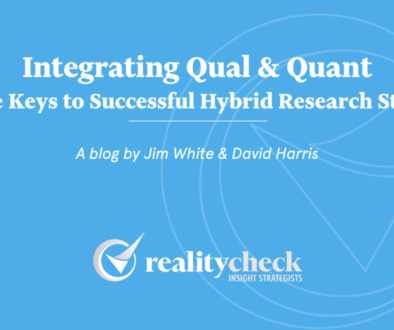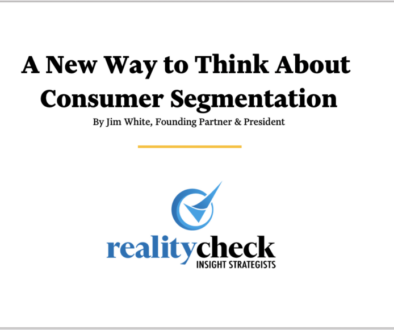Focus Group Techniques: Let’s Bring Human Conversation to Qualitative Consumer Research
 Doesn’t it seem the way we marketers talk to consumers in focus groups can sometimes feel unreal? We do all the asking; they do all the answering. We presume the category is something that matters to them. We act like they’re the experts. We call them “respondents” as if they’re answering robots. You can probably learn something that way, but there’s so much more you can unveil if you shift your approach.
Doesn’t it seem the way we marketers talk to consumers in focus groups can sometimes feel unreal? We do all the asking; they do all the answering. We presume the category is something that matters to them. We act like they’re the experts. We call them “respondents” as if they’re answering robots. You can probably learn something that way, but there’s so much more you can unveil if you shift your approach.
The people that buy products are human beings just like you and me. All aspects of their life affect their attitudes and motivations for their purchase decisions. Understanding the context, the stuff that really matters, might be the most valuable learning. As marketing evolved from simply identifying the brand’s unique selling proposition to setting forth entire belief systems, our methods of understanding customers needs to change.
So how to get that learning?
Conversation. By that I mean talk with them like you’re talking with a “real person” you’ve just met. Conversation is a two-way street. Both have to participate, in talking and in listening. You divulge a bit about yourself and then the other person does. We instinctively look for connections, things we have in common. We have to build up trust to divulge some things, but that’s what conversation is.
Listen to their stories.
A good way to learn about people is to listen to their stories. Everyone has stories. They may not be experts on your product category but they can talk about themselves; it’s a topic they’re close to. Most people love to find someone who will listen to them and make an effort to see them for who they are. We all think we’re unique, and we are.
What we marketers can learn is their belief system, the underlying motivations and values that drive their lives. We can get an understanding of how they’re connected to the culture. The bigger picture of who they are is the part that matters. Getting a sense of what drives them helps us figure out how our brand might offer them something that matters.
People buy “products” for a functional product benefit; they connect with “brands” at a higher level. Human conversations are the way to get the understanding we need.
Let me know what you think.
Sue Chapman
Marketing Research Consultant
RealityCheck























